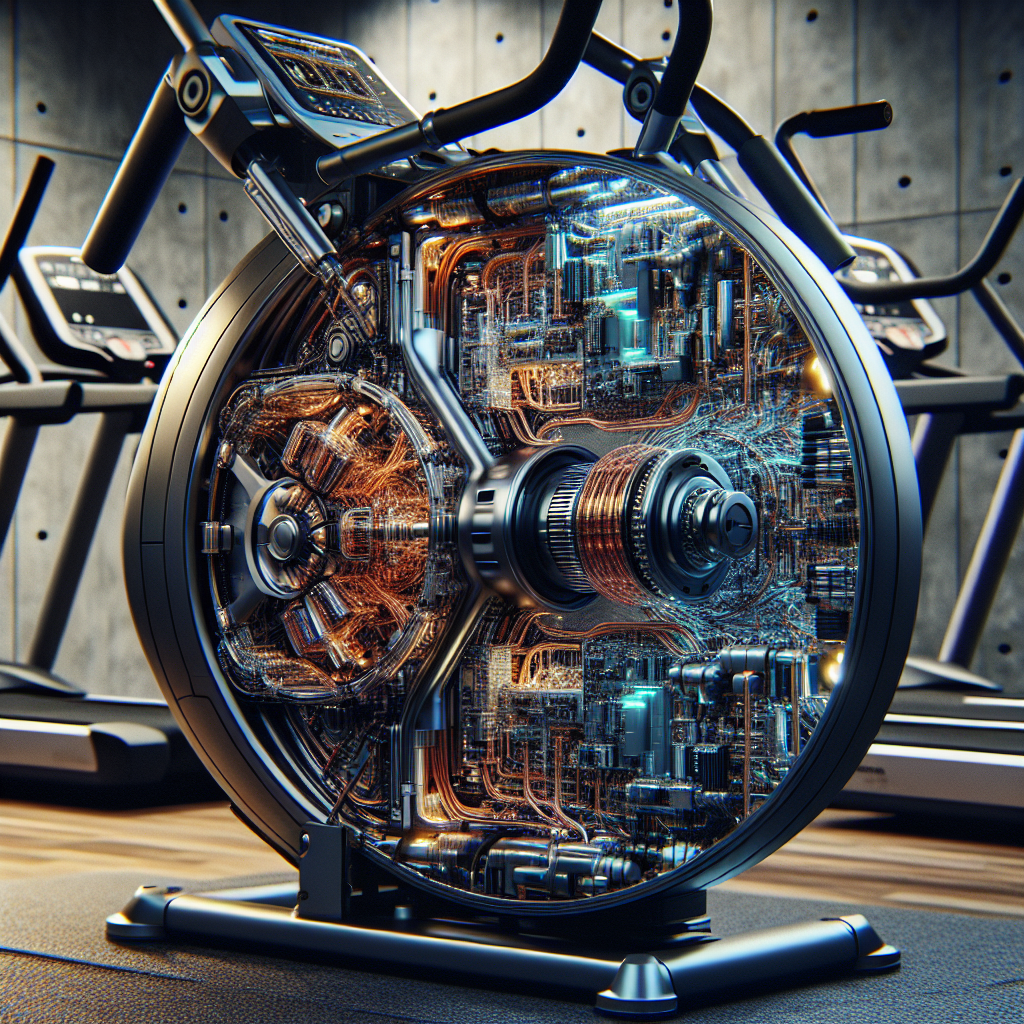
Hacks to Staying Fit with Technology
Introduction
In today’s fast-paced world, staying fit and healthy has become a top priority for many individuals. With the growing interest in biohacking, people are constantly seeking ways to optimize their lifestyles, health, and overall well-being using technology. Fitness tech hacks have emerged as a popular means to achieve these goals. By leveraging the power of technology, individuals can maximize their fitness journey and reach new heights. In this article, we will explore key concepts of fitness tech hacks and provide practical tips for incorporating them into your daily routine.
Key Concepts of Fitness Tech Hacks
When it comes to fitness tech hacks, several key concepts play a crucial role in optimizing one’s health and fitness. Let’s take a look at a few of these concepts:
Concept 1: Nutrition Optimization
Nutrition is the foundation of a healthy lifestyle. With the help of technology, individuals can track their macronutrient intake, monitor calorie consumption, and receive personalized meal recommendations. Fitness apps and wearable devices equipped with food tracking features enable users to make informed dietary choices and ensure they are fueling their bodies with the right nutrients.
Concept 2: Sleep Optimization
Sleep plays a vital role in our overall well-being and athletic performance. Fitness tech hacks can assist in optimizing sleep by monitoring sleep patterns, providing insights on sleep quality, and offering tips for better sleep hygiene. Smart mattresses and sleep trackers can analyze sleep data to help individuals understand their sleep patterns and make necessary adjustments for improved rest.
Concept 3: Exercise Enhancement
Technology can significantly enhance our exercise routines. Fitness trackers and smartwatches allow users to monitor their heart rate, track steps, distance, and calories burned. They can also provide personalized workout plans, track progress, and offer real-time feedback to optimize performance. Additionally, virtual reality fitness programs and interactive workout apps provide engaging and immersive exercise experiences.
Concept 4: Stress Management
Stress can have a detrimental impact on our health and fitness goals. Fitness tech hacks can help manage stress levels by providing guided meditation sessions, breathing techniques, and biofeedback training. Apps and wearables equipped with stress tracking capabilities can detect periods of elevated stress and offer recommendations for stress reduction.
Practical Biohacking Tips
Now that we understand the key concepts of fitness tech hacks, let’s delve into some practical tips to incorporate them into your daily routines:
- Tip 1: Set Nutrition Goals – Use a nutrition tracking app to set personalized macronutrient goals and track your daily food intake. This will help you maintain a balanced diet and ensure you’re consuming adequate nutrients.
- Tip 2: Prioritize Sleep Hygiene – Create a bedtime routine and adhere to consistent sleep and wake times. Use smart sleep devices or apps to monitor your sleep quality and make adjustments as needed to optimize your rest.
- Tip 3: Utilize Fitness Tracking Devices – Invest in a fitness tracker or smartwatch to monitor your heart rate, track steps, and calories burned. Use the data to set goals, track progress, and motivate yourself to achieve new milestones.
Tip 4: Practice Stress Reduction Techniques – Incorporate stress management techniques into your daily routine. Use guided meditation apps, practice deep breathing exercises, or try biofeedback training to reduce stress levels.
Tip 5: Gamify Your Workouts – Make exercise fun and engaging by using fitness apps that offer gamified workout experiences. Challenge yourself with virtual reality fitness programs or interactive workout games to stay motivated and enjoy your workouts.
Biohacking FAQs
Question 1: Can fitness tech hacks replace traditional exercise routines?
– Answer: Fitness tech hacks are designed to enhance traditional exercise routines, not replace them. They provide valuable tools, insights, and motivation to optimize your workouts and monitor progress.
Question 2: Are fitness trackers accurate in tracking calorie burn?
– Answer: While fitness trackers provide estimates of calorie burn, they may not be 100% accurate. However, they can still serve as useful tools for comparing different workouts and monitoring relative progress.
Question 3: Is it necessary to invest in expensive fitness tech devices?
– Answer: No, you don’t need to invest in expensive fitness tech devices to benefit from biohacking. Many smartphone apps offer similar features and functionalities, allowing you to track your fitness journey without breaking the bank.
Question 4: How can biohacking help with weight loss?
– Answer: Biohacking allows individuals to gain a deeper understanding of their bodies and make informed decisions regarding nutrition, sleep, and exercise. By optimizing these factors, individuals can create a sustainable lifestyle that supports their weight loss goals.
Question 5: Can biohacking replace professional guidance from fitness experts?
– Answer: While technology can provide valuable insights and tools, it’s important to seek professional guidance from fitness experts for personalized advice and further fine-tuning of your fitness routine. Biohacking should complement, not replace, expert guidance.
Conclusion
Fitness tech hacks offer a wealth of opportunities to optimize our health and fitness journeys. By leveraging the power of technology, individuals can track their nutrition, improve sleep quality, enhance exercise routines, and manage stress more effectively. The practical tips provided in this article are just a starting point for exploring the world of fitness tech hacks. Embrace biohacking as a means to enhance your overall well-being and unlock your full potential on your fitness journey.
Disclaimer: The information provided in this article is for educational purposes only. It is not intended as medical or professional advice. Always consult with a healthcare professional before making any changes to your diet, exercise routine, or lifestyle.


